Proponents of recycling often tout the environmental advantages of the practice. Although ecology is important, it is only one part of the recycling picture. Recycling offers a tremendous number of financial benefits to our society. A recycling container isn’t a trash bin; it’s an economic powerhouse.
Lower Resource Costs
Throughout history, manufacturers have recycled their materials to save money. If a plant is stamping parts out of sheets of steel, the scraps don’t just get thrown in the trash. They are melted down to be made into a new sheet of steel for more production. A wheat farmer can take the chaff that is inedible to humans and feed it to livestock or plow it into the soil as a nutrient for the next season of crops.
Post-consumer recycling allows manufacturers to recover materials for less than new materials would cost. For example recycled aluminum cans take only about 5% of the energy used to smelt new aluminum from bauxite. Recycled plastic uses only about 10% of the energy of newly manufactured plastic. A recycling container isn’t a trash bin; it’s a resource supply.
Global Green USA highlights newly alternative wax coating cardboard boxes that can be recycled.
Job Creation
The Institute of Scrap Recycling Industries reports that in 2011 the scrap recycling industry created nearly half a million jobs in the U.S., generating $26 billion in wages and $90 billion of economic activity. Roughly a third of those jobs are a direct part of the recycling industry; the other two thirds are indirect jobs supported by the industry.
The recycling industry hasn’t topped out as an employer by any means. The Tellus Institute estimated that 1.5 million more jobs could be created over the next 20 years as recycling rates in this country improve. And, though the recycling industry was affected by the recent recession, it fared better than most of the manufacturing industry demonstrating it is recession-resistant if not recession-proof. A recycling container isn’t a trash bin; it’s a job creator.
E-Waste Recycling Creates Jobs by GSA
Health Benefits
Recycling offers a number of long-term economic advantages that are easy to overlook. For example, we mentioned that recycling aluminum and plastic use less energy than creating new materials, and that saves money. However less energy means less fuel burned, less pollution going into the air, fewer health problems for the populations living around the plants, and that translates to lower medical bills and less work absenteeism.
Recycling is generally healthier than sending products to the landfills. Some recyclables gives of toxic chemicals if left to decompose in landfills, and those chemicals can leach down into the water supply. Incinerating the garbage just dumps those chemicals into the air. A recycling container isn’t a trash bin; it’s a healthy lifestyle.
Recycling: Benefits and Facts
These benefits are in addition to the usual “save the planet” arguments. The economic advantages add value to the already beneficial act of recycling. Just remember the next time you see one of those containers: a recycling container isn’t a trash bin; it’s infinitely more than that.











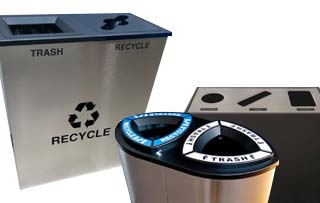









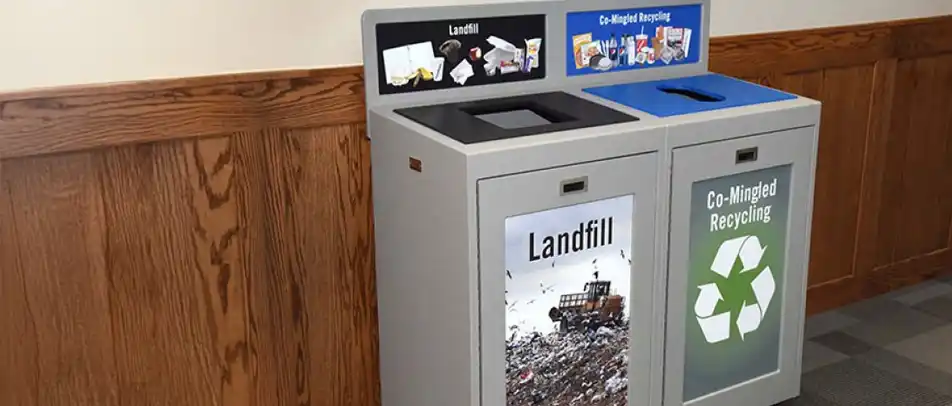










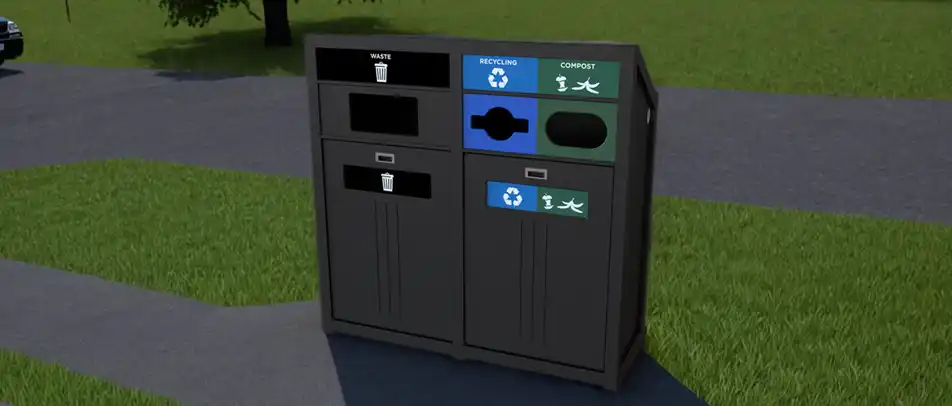












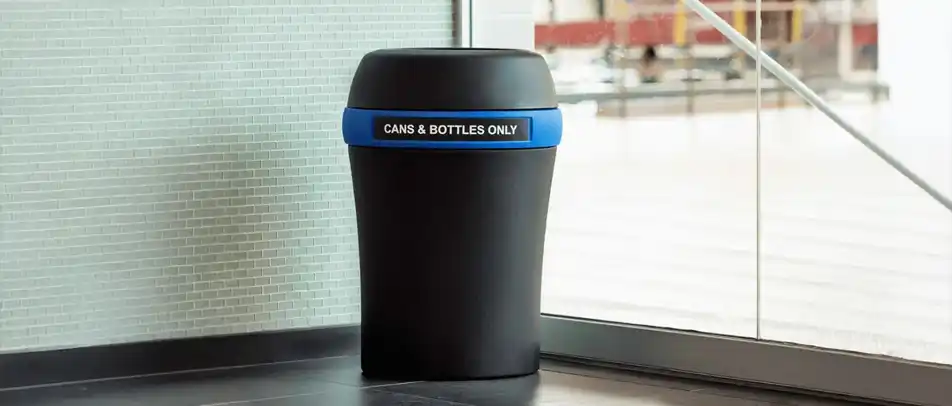









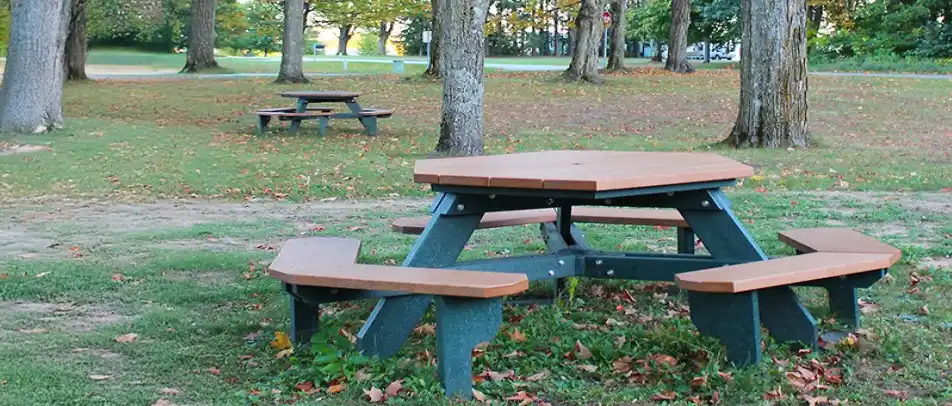
































 Three Ways to Engage Teams and Clients to Maximize Your Recycling Program Engagement
Three Ways to Engage Teams and Clients to Maximize Your Recycling Program Engagement  How to Integrate Accessibility Into Your Sustainability Planning
How to Integrate Accessibility Into Your Sustainability Planning  Why Park Benches Can Promote Workplace Well-Being
Why Park Benches Can Promote Workplace Well-Being 
